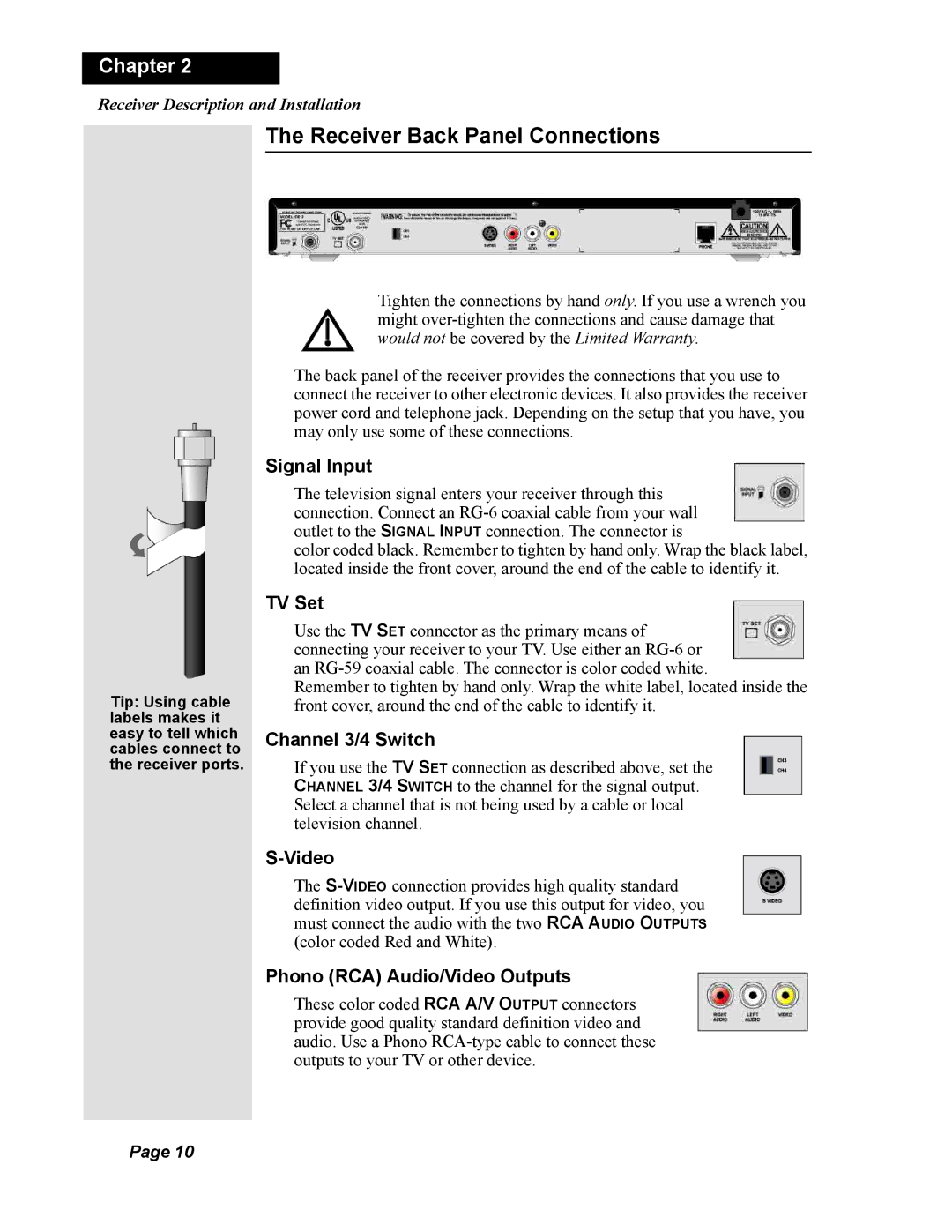
Chapter 2
Receiver Description and Installation
Tip: Using cable labels makes it easy to tell which cables connect to the receiver ports.
The Receiver Back Panel Connections
Tighten the connections by hand only. If you use a wrench you might
The back panel of the receiver provides the connections that you use to connect the receiver to other electronic devices. It also provides the receiver power cord and telephone jack. Depending on the setup that you have, you may only use some of these connections.
Signal Input
The television signal enters your receiver through this connection. Connect an
color coded black. Remember to tighten by hand only. Wrap the black label, located inside the front cover, around the end of the cable to identify it.
TV Set
Use the TV SET connector as the primary means of connecting your receiver to your TV. Use either an
Remember to tighten by hand only. Wrap the white label, located inside the front cover, around the end of the cable to identify it.
Channel 3/4 Switch
If you use the TV SET connection as described above, set the CHANNEL 3/4 SWITCH to the channel for the signal output. Select a channel that is not being used by a cable or local television channel.
S-Video
The
Phono (RCA) Audio/Video Outputs
These color coded RCA A/V OUTPUT connectors provide good quality standard definition video and audio. Use a Phono
Page 10
